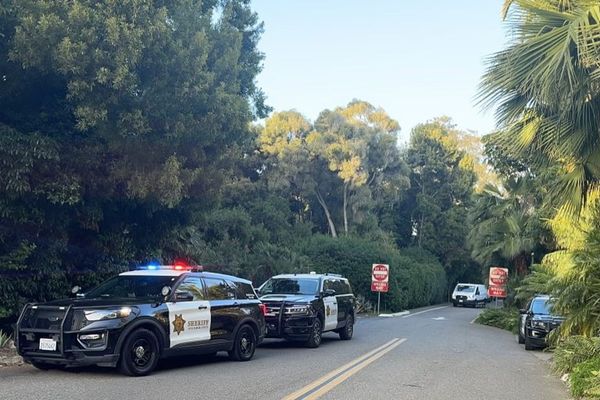There was a time when a royal visit to Canada was seen as a safe introduction to royal touring for novices. This week’s visit to Ottawa by King Charles and Queen Camilla, although his first as monarch, belongs in a very different category.
It is a two-day-long exercise in high-stakes diplomacy, with the centrepiece being the King’s speech from the throne at the opening of Canada’s new parliament on Tuesday.
It is not without precedent for the monarch to fulfil what is, after all, this constitutional role in person.
Queen Elizabeth did so only twice in her long reign. But it is probably fair to say that this royal visit would not be happening at this time, and in this way, without the extraordinary – and highly undiplomatic – interventions from the US president, Donald Trump.
As well as suggesting that the United States could take over Greenland and the Panama Canal, Mr Trump had also laid claim to Canada as his country’s 51st state, subsequently announcing trade tariffs that could yet devastate Canada’s economy. The undisguised purpose of the King’s visit is by way of a riposte.
This will not be a low-key visit. There will be scarcely a moment when the King and Queen are out of the public eye, what with official receptions, tree-planting, and a landau ride with cavalry escort to parliament. The King’s speech itself will be studied for messaging – cryptic and less so.
Just by happening, however, the visit has already conveyed several messages in the nicest, and at once clearest, way: that Canada is a sovereign state; that it has other allegiances; that it has its well-defined place in the world; and – to repeat the words of its prime minister, Mark Carney, at his White House meeting with Mr Trump – that it is definitely “not for sale”.
There will also be the contrast – that will not need to be spelt out – between the capitalised declamations of Donald Trump and the rather different style of the King.
Not to be underestimated are the fortunate coincidences that have produced what is, or at least could be, a unique diplomatic opportunity for the UK. When Canada’s Liberal-led coalition collapsed six months ago, it was confidently predicted that its next government would be formed by the Conservative opposition. But the Conservatives lost.
Their defeat reflected, above all, Canadian indignation at the designs on their country articulated by the White House incumbent. But it also owed something to the new Liberal leader, Mr Carney, who gave the party a fresh look after the years of Justin Trudeau, was at ease on the international stage, and made solid political capital from his forthright condemnations of Mr Trump.
The accession of King Charles, with his long experience of navigating sensitive diplomatic situations, has given the UK a perhaps underappreciated international asset that would appear to be coming into its own, with a mercurial US president who professes a soft spot for the British royal family, especially the late queen.
The King’s invitation to Donald Trump for an unprecedented second state visit, handed over in person by the prime minister in the Oval Office, spearheaded a UK charm offensive with the then new president that seems, so far, to have worked.
In the face of Mr Trump’s attempts to put pressure on Canada, the King and senior members of the royal family then offered subtle hints of support, stressing the long history of UK-Canada relations and accepting an invitation to give the Speech from the Throne at the opening of Canada’s parliament.
He will have been at the very least acquainted with Mr Carney from his time as head of the Bank of England, while a scion of the Carney clan – a brother – holds a senior position at Kensington Palace.
It is easy to criticise such networks as representative of a detached elite; however, they have their uses at times of uncertainty, such as these.
The King, by virtue not just of his position but of his character and experience, may be unique in his potential to bridge the divide that has opened up between the United States and Canada – and that could still open up between the US and the UK.
Such a bridge, standing outside and independent of conventional diplomacy, can offer an invaluable extra dimension to the influence that the UK may otherwise exert. With all these layers, this week’s visit to Canada is not only ceremonial – it carries real diplomatic weight.
Of course, any exercise of such influence by the King has to be discreet, as well as positive. It has to accord, too, with the mood of Canadians, whose support for the monarchy, while historically less ambivalent than that of Australians, has ebbed and flowed.
There is also a paradox: that a King who accepted, when he ascended the throne, that he might need to rein in his more outspoken opinions now finds himself playing a pivotal – and, in relation to Canada at least, a very visible – diplomatic role.
Anachronistic monarchies may be, but it would be a short-sighted government that, given the right circumstances and the right individual, denied such a unique diplomatic asset a role.
Donald Trump has a new battle on his hands… to win the Nobel Peace Prize
The Washington DC shootings have bought Netanyahu international sympathy – for now
Editorial: The West has finally spoken up on Gaza – but it must not stop there
I never thought I’d join the Cyril Ramaphosa fan club until I saw him take on Trump
It is in the West’s interest to prevent nations’ climate destruction
We have a special obligation to Afghan heroes who fought alongside Britain







